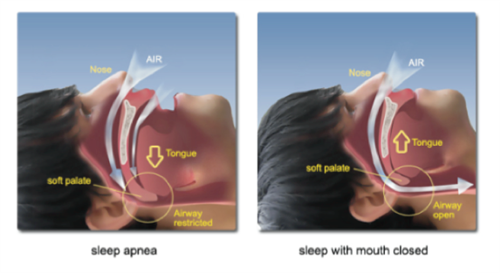Snoring and Sleep Apnea

Approximately 45% of the population experience obstructive breathing patterns during sleep. Such problems can range from snoring to periods of true apnea, where breathing ceases for a brief period of time. Obstructive sleep apnea lead to excessive daytime sleepiness, poor work performance and such cardiovascular disorders as hypertension, arrhythmias and congestive heart failure. Oral and maxillofacial surgeons are trained to diagnose and treat this condition and, in fact, pioneered many of today's most successful surgical techniques for sleep apnea. When conservative methods fail to correct the problem, surgery may be performed to treat the soft and/or hard tissues.
